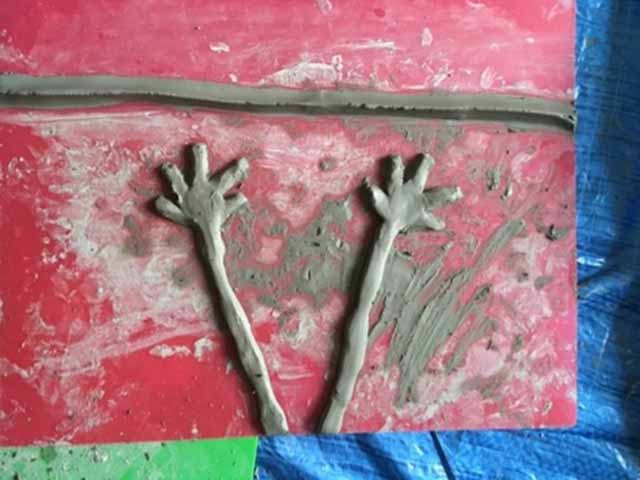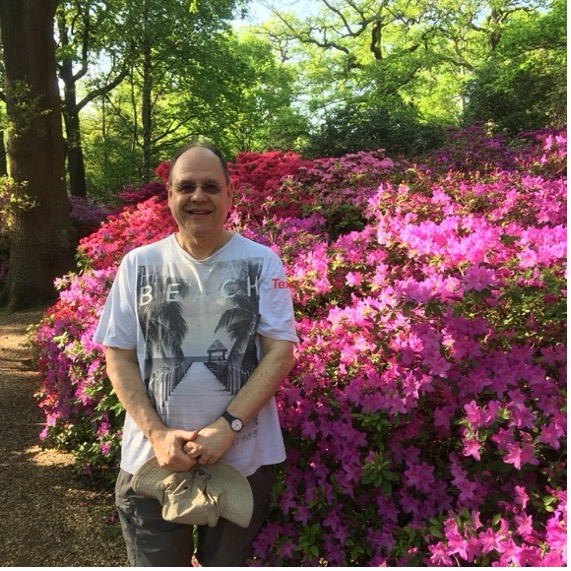
This in-person, CPD intensive caters primarily for qualified counselling and psychotherapy practitioners working directly with children and young people. Lovely West London venue.
Learn to incorporate elements of the following arts modalities in therapy:
- drawing/painting
- working with clay
- Oaklander’s 6-part approach to working with anger
When
Two days:
- Saturdays 19 and 26 October 2024
- 10am to 5.30pm each day
Attendance on both dates required.
Preamble
This part didactic, part experiential in-person course draws inspiration from the pioneering work of Gestalt therapist Violet Oaklander, whose phenomenological approach puts the relationship between therapist and young person at the heart of the therapeutic process.
Many troubled young people struggle to make effective use of their emotions, body, intellect and imagination, to make contact with others or their environment. Others suffer from low self-esteem. Some experience a combination of both difficulties.
Becoming able to express one’s feelings openly and honestly in a supportive environment facilitates growth and development.
Key aspects of Oaklander’s relational theory here are woven around experiential work.
Day 1
We begin with introductions to the course and to the group. Several drawing exercises are introduced as potential ‘icebreakers’, enabling counsellor and client to begin developing a trusting relationship. These non-interpreted exercises form the basis for a respectful conversation that helps the young client ‘over the threshold’ into therapy.
We consider the benefits of Oaklander’s family-based initial consultation and review approach to working with young people; also some ways of including systemic thinking when working where family meetings are not possible.
We end the day with a ‘check out’, enabling participants to reflect on their experience.
Day 2
We begin with a short role-play to explore the process of meeting a child with their family for consultation, and discuss how to formulate a help plan. Next we turn our attention to working ‘hands on’ using clay, a wonderful creative medium with the capacity for building and de-structuring. For some children and young people making contact (connection) with clay has a calming effect; for others working the clay brings forth exciting new discoveries. Yet others may find clay supports an exploration of unresolved issues in their lives. For example, feelings of grief following the loss of a friend or pet, helping find the words to say goodbye to a loved one or to a familiar place.
In the afternoon we focus on ways of facilitating a process around expression and containment of strong feelings, particularly anger. Violet Oaklander described anger as “the most misunderstood of all the emotions – it gets a ‘bad press.’” Many young people who come into therapy struggle with expressing and/or containing anger: some are unable to assert personal boundaries whilst others struggle to cope with frustration. Learning to safely express and contain strong feelings – especially anger and grief – in authentic, relational ways are important aspects of the Oaklander approach. We also consider psycho-educational ways of helping the child reflect on choices and consequences, developing appropriate, effective ways of navigating life’s vicissitudes. Participants are encouraged to share something of their ‘take away’ at the end of the second day.
In summary
Violet Oaklander’s projective arts-based, Gestalt approach helps facilitate exploration of emotional blockages and unresolved situations. This enables children and adolescents to discover their competence, their ability to make satisfying choices, and capacity for resilience.
Training methods
Includes the following:
- ‘live’ demonstrations
- Oaklander theory
- experiential group work
- discussion
Learning objectives
Participants will gain a basic understanding of:
- the power of the arts to convey emotion in therapy
- how to explore image or metaphor in a dialogue
- the emergence and development of the relational self
- how to engage young people in an exploration of thoughts and feelings using expressive arts
Booking and fees
Applicants to the course are asked to submit a paragraph or two describing their background or work context, indicating what they are seeking from attending this training. After this they may be invited to a short interview online or in person.
Successful applicants will be invited to reserve their place by making full payment.
Fee: £220 payable by BACS (details on request). Includes all materials, worksheets, attendance certificate (on completion) and refreshments.
Recommended texts
Applicants may find the following books helpful:
- Oaklander, V. (2006), Hidden Treasure : A Map to the Child’s Inner Self, Karnac, London
- Oaklander, V (1978), Windows to our Children, Gestalt Journal Press, USA
- Mortola, P. (2006),Window Frames: Learning the Art of Gestalt Play Therapy the Oaklander Way, Gestalt Press , USA
Course content
Day 1: Drawing
- Introduction to the course: Sociometry
- Theory: What brings young people into therapy
- Oaklander’s Model of Development
- Safe Place drawing/painting
- Rosebush drawing
- House, Tree, Person drawing
Day 2: Clay
- Beginning a family consultation
- Making a help plan
- Introduction to clay work: exploratory sequence
- Clay as an aid to resolving ‘unfinished business’
- Understanding anger: Oaklander’s 6-stage approach
- Facilitating expression and containment of strong feelings
About Jon Blend (course facilitator)
Jon (MA Dip Child, Dip Psych) is an adult and child psychotherapist, writer and musician. He has delivered Oaklander-inspired trainings, conference keynotes and workshops to various therapy institutes in UK, Bulgaria, Canada, Hungary, Iran, Poland, Russia, Ukraine and USA. Jon first trained with mentor Violet Oaklander in 2000. He is an approved tutor of the Oaklander method working in association with the Violet Solomon Oaklander Foundation. He is also a faculty member of the Institute for Arts in Therapy and Education (IATE, Wellbeing Diploma).
During the pandemic, drawing inspiration from earlier visits to the nursery/school at Esalen, California, Jon established Gazebo Training School in West London. Here he worked creatively ‘al fresco’ with clients in nature. He continues to facilitate arts based trainings, working ‘under cover’, online and outdoors.
My intention is always to satisfy hopes and aspirations of participants in my workshops. If you feel dissatisfied with any aspect of the course kindly raise your concern directly with me in the first instance to see if a solution can be found. Should this not bring resolution there is an independent appeal process available.


